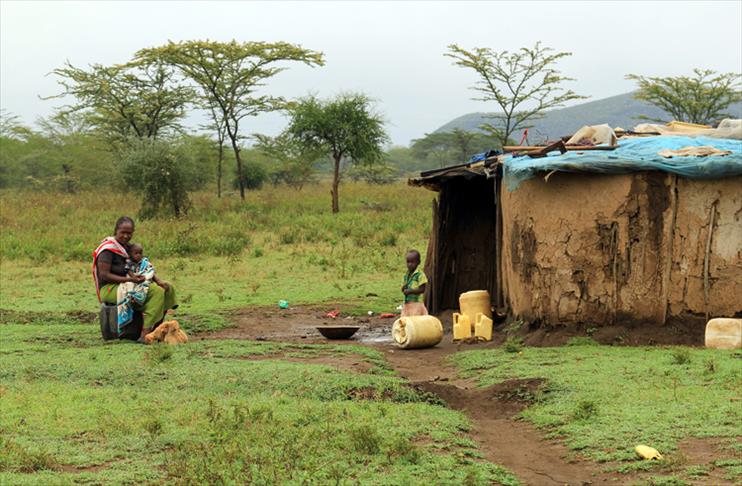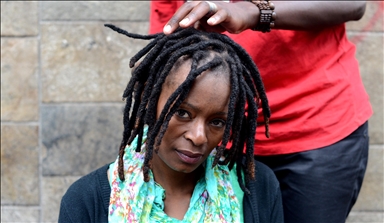
By Magdalene Mukami
NAIROBI, Kenya
In Kenya’s northern plains lies a female-only village where no man is allowed to set foot.
Women from Kenya’s Samburu district have created a utopia for themselves to escape their husbands back home.
Whether you are a victim of female genital mutilation, sexual harassment, rape, domestic violence or forced marriage – as long as you are a woman in pain, you will be welcomed to live in Umoja Uaso village.
Umoja is a Swahili word meaning “unity” and this is what drives the women of Umoja village.
“I love living here because I can escape from my forced marriage,” Rose Leshornai, 18, told Anadolu Agency. “I had been married to a very old man who used to beat me up every single day.”
Leshornai said she had nothing against their traditional customs.
“The man is the head of the family – but he has to be supported by the neck,” she said. “We [women] are the neck.”
“Our culture gives men all the power over women. We are bound forever to do what they want. Even the kids that we give birth to are not ours, they belong to them,” she added.
Beaded Jewelry
Samburu women are usually adorned in hundreds of pieces of beaded jewelry, worn both as necklaces and bracelets. The magnificent beads match traditional Samburu attire, which is comprised of checkered blankets.
Tourists travel from all over the world to buy the elaborate beaded jewelry, which the villagers make by hand.
These necklaces, however, have a sinister connation for underage girls in the Samburu community.
The elaborate necklaces are not worn by young girls for fashion, but rather they hide an old cultural practice called “beading.”
Anyone above the status of Moran (warrior) has the right to “bead” a girl aged between 8 and 14 to “book” her for marriage.
By visiting a family and offering a set of beaded necklaces and bracelets to them, the man will have officially claimed the girl as his and will from then onward have the right to engage in sexual intercourse with her - although the girl is often not allowed to give birth.
“That is why I left my village, we are not allowed to love who we want,” Josephine Loyar told Anadolu Agency. “Our first sexual experience is never consensual.”
“If the girl gets pregnant, then ‘kneading’ is carried out on the underage girl’s belly to get rid of the fetus,” she explained.
In some cases, the girls are allowed to give birth. If they deliver a boy, then the infant is fed tobacco and water so it can die; if they give birth to a girl, then the infant is allowed to live because of the high dowry they would fetch one day.
In Samburu culture, women have no say over who they can marry.
As soon as young girls reach puberty, they are immediately engaged to older men, mostly relatives, who can claim them as their wives as soon as they pay the required dowry.
“The world has changed,” Leshornai said. “People now can have their own rights.”
That’s why I escaped from my village a long time ago to join Umoja village, the place where men are not allowed to enter,” she added.
Challenges
When the women-only village was built back in 1990 by Rebecca Lolosoli and 14 others, all hell broke loose as men from the Samburu community were angered by the fact that women had chosen to live in segregation.
“I have received constant death threats from men in our community,” Rebecca Lolosoli told Anadolu Agency.
Apart from security, Losoli said they urgently needed schools and hospitals in Umoja village.
The women have successfully built themselves a preschool from the money they make selling beads to tourists.
Other challenges include trying to convince women that they have rights.
“Samburu people really treasure their customs,” the Umoja village matriarch said. “Some don’t believe that they can live in better conditions – that is why education is important.”
The women wish one day to set up schools to empower their children and others in their small community.
Anadolu Agency website contains only a portion of the news stories offered to subscribers in the AA News Broadcasting System (HAS), and in summarized form. Please contact us for subscription options.





